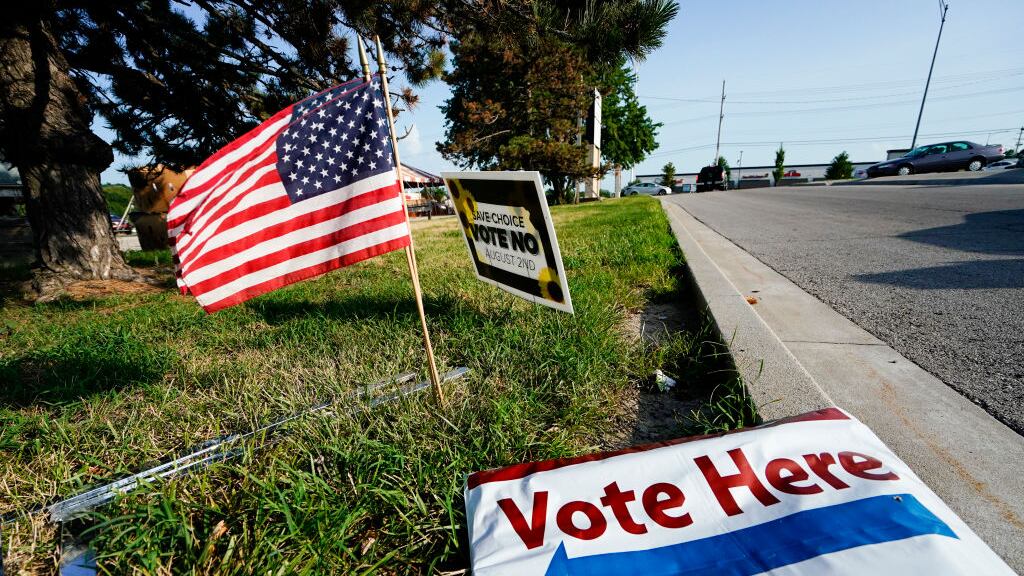This Tuesday, November 5, the United States presidential elections are taking place in several states that, according to population composition, their political history, and the latest polls, have virtually decided votes for Kamala Harris or Donald Trump.
Therefore, nobody will be surprised if it is announced that California's 54 electoral votes will go to the Harris-Walz Democratic ticket, or if the Trump-Vance ticket wins in Tennessee.
PUBLICIDAD
On the list of "blue" states, safe or highly favorable for Democrats, in addition to California, the following appear: New York, New Jersey, Oregon, Washington, Maryland, Massachusetts, and Colorado, among the most notable for the electoral votes they carry.
In the case of "red" states, safe or very favorable for Republicans, Texas, Florida, Missouri, Oklahoma, Kentucky, Alabama, and South Carolina stand out, to mention the most relevant ones.
270 electoral votes are needed to be elected President of the United States, and at this time Harris would have a base of 226 electoral votes and Trump, 219.
Therefore, a report from the BBC shows that according to experts, the next election will be decided by seven states, referred to as battleground states:
Arizona (11 electoral votes):
In 2020, Joe Biden became the first Democrat to take this state since the 90s. As it is a border state with Mexico, the debate on immigration will be crucial to decide whether it stays "blue" or returns to the "red" column.
For the same reason, Trump has repeatedly attacked Harris's immigration record and has promised to carry out "the largest deportation operation" in United States history. But on the other hand, Republicans have an open flank on abortion, which has been one of the most heated debates in Arizona.
Georgia (16 electoral votes):
The Democrats could reach the house without Georgia, but for the Republicans it's more essential.
That's why in 2020 Trump and his allies tried to block Biden's legitimate victory. This alleged electoral interference has the Republican candidate facing a legal process, although the case would not reach the courts before November 5th.
One third of Georgia's population is African American, and although they seemed disenchanted with the current president, they seem to have been motivated by Harris.
Michigan (15 electoral votes):
Except in 2016 when they gave their vote to Trump, this state has chosen Democratic candidates in seven of the last eight elections.
However, it is considered a "swing" state, meaning it could return to the Republican column, because it has a high Arab population that harshly criticizes Biden's support for Israel in the Gaza War. For this reason, Harris has adopted a tougher stance against the government of Benjamin Netanyahu.
Nevada (6 electoral votes):
They have voted for the Democrats in four consecutive elections, and in this, the Latino population has played a key role.
But when Biden was the Democratic candidate, Trump had a considerable advantage in the polls, which has diminished with the emergence of Harris.
While Nevada does not contribute a large number of electoral votes, they could prove crucial in an election as closely contested as the one predicted for November 5th.
Pennsylvania (19 electoral votes):
Of all battles, this promises to be the most important. In 2020 it was key to delivering victory to Joe Biden, who has a deep emotional connection with the working-class city of Scranton, where he grew up.
The economy and inflation will play a preponderant role in Pennsylvania, and in that aspect, Trump may have an advantage over Harris. This state has been one of the most impacted by the rise in fuel prices. Both candidates have focused on this state in the final days of the campaign.
Wisconsin (10 electoral votes):
It chose the winning presidential candidate in 2016 (Trump) and 2020 (Biden), by a margin of just over 20 thousand votes each time.
According to the BBC, in Wisconsin third-party candidates could have an impact, and for this reason, the Democrats fought to have the Green Party candidate, Jill Stein, removed from the ballot in this state and filed an election complaint against Cornel West, a left-leaning academic. Both Stein and West were confirmed on the ballot by various legal instances.
Wisconsin is so critical that the Republican National Convention was held in Milwaukee and during the Democratic National Convention, Harris traveled to hold a massive political rally in the same venue that officialized Trump as a candidate.
North Carolina (16 electoral votes)
A few months ago, analysts only talked about six battleground states, as it was assumed that North Carolina was favorable for the Republicans.
However, the Democrats rebounded since Kamala Harris was named as a candidate. Perhaps that is why Trump chose this state to hold his first outdoor political event since the attack on his life in July.
In turn, the Democrats gave prominence to the governor, Roy Cooper, on the last night of the National Convention.
